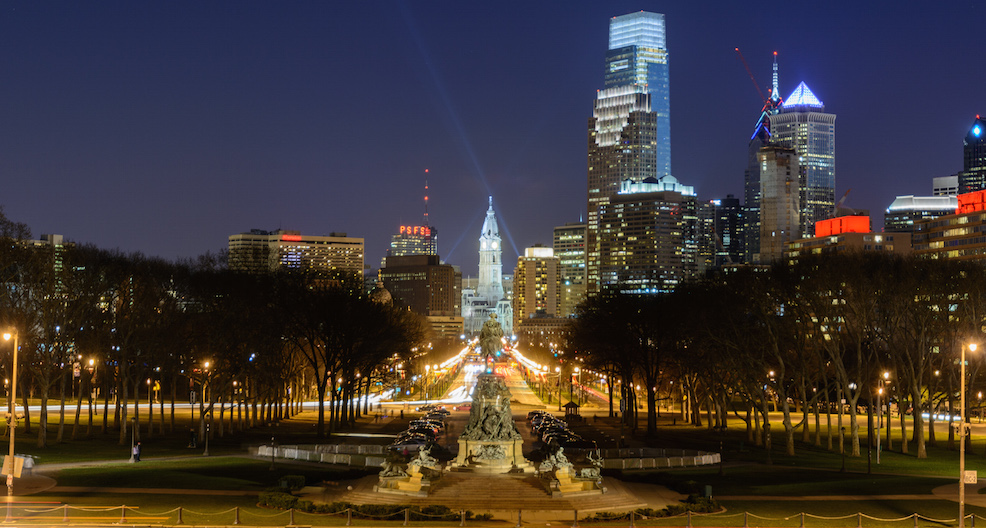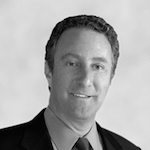
The Institute for Journalism in New Media, the nonprofit that now owns Philadelphia’s two daily newspapers, announced on Monday that it had hired media consultant Jim Friedlich as its executive director.
 Friedlich is a former Wall Street Journal executive, and in 2011 he co-founded the media consulting firm Empirical Media, which has advised outlets such as the Dallas Morning News and Reuters.
Friedlich is a former Wall Street Journal executive, and in 2011 he co-founded the media consulting firm Empirical Media, which has advised outlets such as the Dallas Morning News and Reuters.
H.F. “Gerry” Lenfest, the former owner of the Philadelphia papers, launched the Institute in January with a $20 million donation. As part of Friedlich’s hiring, Lenfest also bought the assets of Empirical and donated them to the Institute.
Even though the Inquirer, Daily News, and Philly.com are now owned by the nonprofit, they are still for-profit entities and they report to Philadelphia Media Network publisher Terry Egger, who reports to a separate board from Friedlich.The Institute is only allowed to fund specific PMN projects, as a result the papers still need to find ways to make money. Their underlying business challenges, the same challenges that face all metro newspapers, still exist.
On Wednesday, just two days after he started his job as executive director, Friedlich and I discussed his plans for the Institute and how he views the state of local news. Still, he cautioned that he was speaking as the “consultant of the past, not the executive director of the future.”
“I’ve been in my new role as executive director of the institute for all of two days, so the perspective I’m sharing is based upon our previous work with newspapers and digital news organizations around the world,” he said. “As Institute director, I plan to look, listen, and learn from my colleagues in this market and others to help determine where we can be most effective and where we can best invest our time and resources.”
What follows is a lightly edited and condensed transcript of our conversation.
I’m deeply compelled by the mission to advance journalism in digital form. I’ve really focused my career on that. I have personal ties to Philadelphia, part of my family is from here. I have a deep reverence for these news properties and a history of 20 Pulitzer Prizes, etc. And I think it’s vitally important that we advance them in the future.
I’m also deeply enamored of Gerry Lenfest, who I’ve gotten to know over the past six to nine months. He’s a media pioneer in his own right, he’s a philanthropist, but really he’s a venture philanthropist, a very inventive, active philanthropist. He’s 86 years young.
I said to the newsroom yesterday during a townhall that I thought of Gerry as 86 going on 18, and I said that I look forward to working with this young man. I mean that in not quite literal terms, but very sincerely.
People were most curious about how we would work together in the future and what the appointment means for them — all politics is local.
My team and I have been here for about nine months working on different parts of the digital transition of the Philadelphia Media Network. We have a project here called Accelerating Digital Growth at PMN, so we’re familiar faces to many. I think there was curiosity from one part of the organization about what we’ve been doing with other parts of the organization.
Topic number two was audience development. That again was a multi-disciplinary team of seasoned veterans and relatively new hires from different departments. We worked with them on how to engage and expand the digital audience and how to evolve to an audience-first organization.
The third area was on product, and that was again a multidisciplinary and multi-generational team helping create a product road map and improvements in user experience, particularly on mobile.
In all cases it was very hands on, very collaborative, and driven by the needs and desires of the organization rather than the views of an outside consultant.
So, to be clear, that’s one of the functions moving forward, but not the entirety of our mission or our scope.
The focus of the institute is on sustaining and advancing great journalism at the local and metro level. This is where we’ve seen some of the greatest challenges in news, and where we think we’ll see some of the biggest opportunities. In that context, we’re focused on leveraging our presence in Philadelphia to experiment and reinvent in the Philadelphia media ecosystem that’s inclusive of, but not limited to, the PMN properties.
The goal then is to take what we learn here and apply it to other major metro markets, and vice versa, to take learnings and best practices from other markets with which we’re familiar and apply them in Philadelphia.
We’ve worked as Empirical in newsrooms and media companies in Dallas; Los Angeles; Chicago; New York, Sydney, Australia; Bogota, Colombia; Richmond, Virginia; and elsewhere. The idea of sharing across markets and being a clearing house for best practices comes very naturally.
There’s significant evidence that readers are willing to pay for high-quality journalism. You have significant digital subscription revenue not only at the major national newspapers like The Times and the Journal, but also at places like The Boston Globe, the Minneapolis Star-Tribune, Miami Herald, Dallas Morning News, etc. Reason for cheer number two is that users are beginning to value their news online enough to really pay for it. That’s really a key factor in sustainability.
The last is that there is this enormous and extremely gratifying collection of young companies like Mic.com, or Vox, or Business Insider, which is a little bit more established, that have created substantive audiences and are building very real businesses. You put it all together and there’s every reason to believe that they’ll be a vital place for journalism and the business of journalism for a long time to come.
Somehow along the way, when news became free on the Internet, you lost one pillar of that business relationship. The New York Times proved beyond a shadow of a doubt that if you have a large audience and an engaged audience you can convert them from free to paid, and they now have on the order of 1 million paid digital subscribers. That’s key to their future and that’s key to the future of news around the world. At the same time, the device that all of us have in our pocket and consume our news on, the smartphone, is also one of the greatest inventions in the history of the world for creating a paid relationship. We pay for our music, we pay for our movies and Netflix, and, increasingly, people pay for news.
Whenever you have an engaged audience and the ability to target, both of which digital provides, there’s an opportunity to create value for marketers and advertisers.
Digital has disrupted traditional ad models, but it has also created a collection of powerful new ones, and those relatively new models range from different forms of social engagement, to native digital advertising, to behaviorally targeted display advertising, which remains successful for advertisers. Digital advertising is under reinvention, but it’s a big and rapidly growing business.
I think there is an increasing desire for face-to-face and live media in a digital age. Local and metro news organizations do a superb job of hosting events. The convening power of news organizations and brands like the Philadelphia Inquirer remains quite powerful, so events are another area of real business and future potential. Those are just a couple of examples.
There’s a growing business for local news organizations in providing marketing services to their advertisers as well. This is a part of the strategy of the Dallas Morning News, it’s a growing business at The Boston Globe and the Minneapolis Star-Tribune, and it’s a key focus here in Philadelphia.
Again all of these are representative of our past work rather than a future focus of what is still a very brand new institute and leader.
Startups are distinguished by their ability to move quickly, their ability to iterate, their ability to focus on typically younger audiences and new models. Established news organizations are distinguished by their thoroughness, their depth, their resources, and their market reach. If you combine those qualities in the future, you’ve got the winning team.